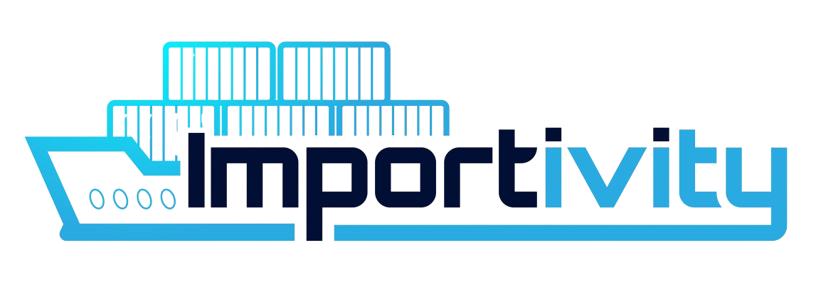In today’s dynamic global market, businesses face increasing pressure to adopt ethical and sustainable sourcing practices. Consumers are more informed and concerned about the origins of products, environmental impacts, and the ethical standards of companies they support. For businesses aiming to thrive, integrating ethical and sustainable sourcing is no longer optional—it’s imperative.
Understanding Ethical and Sustainable Sourcing
Ethical sourcing ensures that suppliers operate under fair labor practices, uphold human rights, and maintain safe working conditions. This approach emphasizes the well-being of workers and communities involved in the production process. Sustainable sourcing, on the other hand, focuses on minimizing environmental impact by promoting practices that conserve resources and reduce pollution. Both concepts are intertwined, aiming to create a supply chain that respects both people and the planet.
The Importance of Ethical and Sustainable Sourcing
Adopting ethical and sustainable sourcing offers numerous benefits:
- Brand Reputation: Companies committed to responsible sourcing often enjoy enhanced brand loyalty and trust among consumers.
- Risk Mitigation: Addressing potential ethical or environmental issues proactively reduces the risk of scandals or legal challenges.
- Market Competitiveness: As consumers increasingly prefer sustainable products, businesses that align with these values can capture a larger market share.
Challenges in Implementing Ethical and Sustainable Sourcing
Transitioning to ethical and sustainable sourcing presents challenges:
- Complex Supply Chains: Global supply chains can be intricate, making it difficult to monitor and enforce standards at every level.
- Cost Implications: Sustainable materials or ethical labor practices may initially incur higher costs.
- Supplier Resistance: Some suppliers may be reluctant to change established practices or invest in necessary improvements.
Strategies for Ethical and Sustainable Sourcing
To navigate these challenges, businesses can adopt the following strategies:
- Supplier Engagement and Capacity Building
Collaborate with suppliers to understand their operations and provide support for improvements. This partnership approach fosters mutual growth and ensures alignment with ethical standards. - Transparent Communication
Openly sharing sourcing practices with consumers builds trust and demonstrates commitment to ethical operations. Transparency can be achieved through detailed product labeling and informative marketing. - Adoption of Technology
Utilize technologies like blockchain to enhance traceability within the supply chain. This ensures that products are sourced responsibly and allows for real-time monitoring of compliance. - Third-Party Certifications
Obtaining certifications from recognized bodies, such as the Better Cotton Initiative, provides assurance of adherence to ethical and sustainable standards. - Continuous Improvement
Regularly assess and refine sourcing strategies to adapt to evolving standards and consumer expectations. This involves staying informed about industry trends and being proactive in implementing best practices.
Importivity’s Role in Promoting Ethical and Sustainable Sourcing
At Importivity, we understand the complexities of global sourcing and are committed to guiding businesses toward ethical and sustainable practices. Our services include:
- Product Sourcing: Connecting clients with manufacturers who adhere to stringent ethical and environmental standards.
- Supply Chain Management: Ensuring transparency and efficiency throughout the supply chain to uphold sustainability goals.
- Import-Export Consulting: Providing insights and strategies to navigate international trade responsibly.
By partnering with Importivity, businesses can confidently move towards a more ethical and sustainable future, meeting the demands of conscientious consumers and contributing positively to the global market.
Takeaways
Embracing ethical and sustainable sourcing is essential for businesses aiming to remain relevant and responsible in today’s global market. While challenges exist, the strategies outlined above, coupled with expert guidance from partners like Importivity, can lead to successful integration of these practices. Ultimately, this commitment not only benefits the environment and society but also enhances business resilience and profitability.
Frequently Asked Questions
1. What is ethical sourcing?
Ethical sourcing involves procuring materials and products in a manner that respects human rights, ensures fair labor practices, and maintains safe working conditions.
2. How does sustainable sourcing differ from ethical sourcing?
While ethical sourcing focuses on social aspects, sustainable sourcing emphasizes environmental responsibility, aiming to minimize negative impacts on the planet.
3. Why should businesses invest in ethical and sustainable sourcing?
Investing in these practices enhances brand reputation, meets consumer demand for responsible products, and mitigates risks associated with unethical operations.
4. What obstacles could a company encounter while adopting sustainable sourcing practices?
Challenges include managing complex supply chains, higher initial costs, and potential resistance from suppliers to change established practices.
5. How can Importivity assist in achieving ethical and sustainable sourcing?
Importivity offers services such as product sourcing, supply chain management, and import-export consulting, all tailored to promote and implement ethical and sustainable practices in your business operations.




